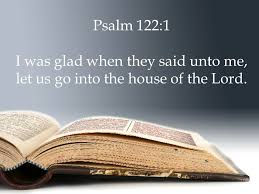PARASHAT RE’EH
- Herschel Raysman
- Aug 21, 2025
- 3 min read
Saturday 23rd August 2025 Mevorchim Chodesh Elul 29th Av 5785
PARASHAT RE’EH
Torah: Deuteronomy 11:26-16:17; Prophets: Isaiah 54:11-55:5;
Gospel: John 6:35-51
The forty-seventh reading from the Torah and the fourth reading from the book of Deuteronomy is named Re’eh, an imperative form of the word “see.” It is the first word of the Torah portion: “See [re’eh], I am setting before you today a blessing and a curse” (Deuteronomy 11:26).

Invitation to God’s House
Why do people face toward Jerusalem while praying?
When King Solomon dedicated the Temple in Jerusalem, he petitioned God that He might place His Name upon the Temple. He asked God to hear from heaven and answer anyone who prayed toward that place.
The LORD consented to the request: “I have heard your prayer and your supplication, which you have made before Me; I have consecrated this house which you have built by putting My name there forever, and My eyes and My heart will be there perpetually” (1 Kings 9:3).
Moses describes Jerusalem as “the place which the LORD your God will choose” (Deuteronomy 12:5). It is the place of God’s Name. The Temple Mount in Jerusalem remains the chosen place of God’s presence even though the Holy House upon it no longer remains. God’s Name remains there. His eyes and His heart remain in that place perpetually. This explains why we still revere the Temple Mount and pray in the direction of Jerusalem.
The Torah offers an invitation to God’s House in Jerusalem. Anyone seeking God in prayer or desiring to draw near to His presence was invited to visit Him there: “My house will be called a house of prayer for all the people” (Isaiah 56:7). The LORD invited Israel to bring their sacrifices and gifts to Him there, to bring their tithes and offerings, and to rejoice before Him in that place. Imagine a common man receiving an invitation from a great king: “Come to my palace and spend time with me. Bring your family and eat at my banquet table.” How privileged such a man would feel. Would he not hurry to that place?
There also you and your households shall eat before the LORD your God, and rejoice in all your undertakings in which the LORD your God has blessed you. … And you shall rejoice before the LORD your God, you and your sons and daughters, your male and female servants, and the Levite who is within your gates. (Deuteronomy 12:7, 12)
The Messiah offers a similar invitation. He invites us into the Father’s house, saying, “In My Father’s house are many dwelling places; if it were not so, I would have told you; for I go to prepare a place for you” (John 14:2). He invites us into the LORD’s house, not just as invited guests but as family members. Those who accept the invitation will sit at the table in the kingdom with Abraham, Isaac, and Jacob and all Israel.
The Word of the LORD tabernacles within our Master Yeshua, and the Spirit rests upon Him without measure, making Him the living temple of God. Much as God chose Jerusalem as His habitation from among all the tribes, He chose Yeshua of Nazareth to be the sanctuary of His Dwelling Presence: “In Him all the fullness of Deity dwells in bodily form” (Colossians 2:9).
God’s Name remains on Zion forever. Likewise with the Messiah, “God highly exalted Him, and bestowed on Him the name which is above every name” (Philippians 2:9).
_____________________________ |

Comments